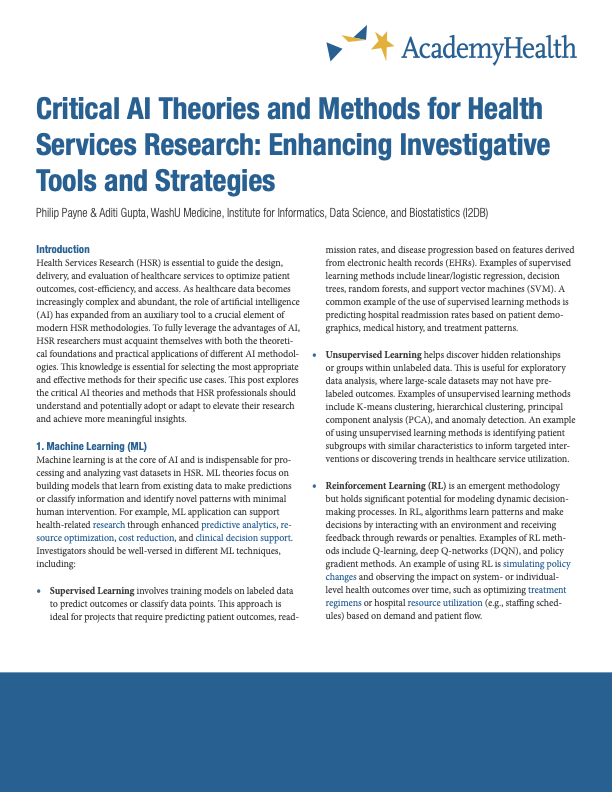
Critical AI Theories and Methods for Health Services Research: Enhancing Investigative Tools and Strategies
This resource explores the critical AI theories and methods that health services research professionals should understand and potentially adopt or adapt to elevate their research and achieve more meaningful insights.
Dr. Philip Payne and Dr. Aditi Gupta provide definitions and explanations of AI theories and methods to emphasize the current and future roles of AI in health services research. Payne and Gupta delve into machine learning, deep learning, natural language processing, hybrid AI models, and theoretical foundations of AI ethics and bias mitigation to highlight the differences and nuances of these different models. This resource underscores the importance of real-world efficacy, spotlighting AI's transformative potential to enhance research methodologies and healthcare delivery. Additionally, it offers insights into how these emerging tools can pave the way for future healthcare innovations and promote equitable access to care, striking the balance between AI's promise and the practical challenges it must address.